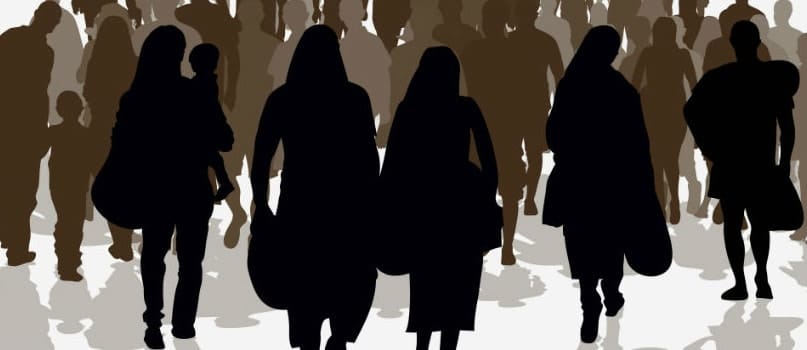
The Democratic Republic of Congo (DRC) is on the brink of a massive humanitarian crisis. The country erupted into what was arguably Africa’s worst ever civil war towards the end of the 90’s and since then it continues to have to deal with a number of smaller conflicts concerning land natural resources and power. Africa has more people displaced as a result of conflict than any other continent on the planet. The DRC has more people displaced by conflict in Africa than any other country on the continent. Last year every day, on average, 5,500 people were fled their homes bringing the total number of displaced people to more than 4 million people.
Why aren’t we hearing much about it?
The conflicts raging in the DRC has produced a hunger crisis. 7.7 million people face the prospect of acute hunger and 1.9 million children suffer from severe malnutrition. Clean water is not available to the vast majority of the population and as a result the DRC is the location of the worst-recorded cholera outbreak this decade. The sheer scale of the problem the country faces is immense and the reason mainstream Western media is not covering the crisis in the way that they should comes down to “crisis fatigue”. Whilst the most recent conflict erupted in 2016, media seemed completely uninterested until two UN investigators were murdered in March last year. Recently 14 UN peacekeepers were also assassinated leading to increased awareness though holding the public’s attention remains a challenge.
What’s being done about it?
Unfortunately, the answer to that question is “not enough”. The number of people who are in need of humanitarian aid stands at approximately 13 million, representing an increase of a whopping 6 million people compared to this time last year. This year’s UN funding appeal for the DRC is the world’s largest and the agency is requesting US$1.6 billion. So far less than half the requirement has been met whilst the situation in the DRC continues to deteriorate.
Aid agencies are innovating
The current trend is for donors to force their partners to direct their actions where the needs are greatest and this means agencies are becoming more innovative. For example, Concern Worldwide established a mobile team to deal with displacements and in December last year the aid agency distributed kits containing hygiene and household items to more than 2,500 people that had been forced to flee their homes in under ten days from they day the alert was launched. It is hoped that such examples and better messaging combined with a targeted humanitarian response will inspire more donors to contribute.
What is Concern doing?
Last year Concern opened three offices in the worst affected conflict-ridden areas. The agency seeks to provide assistance to families that have been displaced either in-kind, if local markets are shut as a result of the crisis or by providing cash if local markets continue to function. Concern is also working with other agencies to provide emergency shelter and access to clean water to people who need it. Concern is also providing targeted cash assistance and training to recipients in order to provide the tools for them to escape extreme poverty. So far thanks to the generosity of the public, Concern has been able to provide financial assistance and distribute household materials to 12,000 displaced individuals and is lead agency of the biggest water sanitation consortium in the DRC. More than 600,000 people across seven provinces in the DRC have access to safe water thanks to the project.





